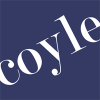Creating a br and image is a tough task for any business, and once created, that image is often much harder to maintain. At one time, maintaining a brand was all about creating the right product and delivering on the value proposition. But if spas thought that was difficult, it’s gotten exponentially tougher with the advent of social media. How do small businesses protect their brands, project the right image, respond to complaints and not let one bad guest encounter tarnish the opinions of potential new customers?
and image is a tough task for any business, and once created, that image is often much harder to maintain. At one time, maintaining a brand was all about creating the right product and delivering on the value proposition. But if spas thought that was difficult, it’s gotten exponentially tougher with the advent of social media. How do small businesses protect their brands, project the right image, respond to complaints and not let one bad guest encounter tarnish the opinions of potential new customers?
It may be nearly impossible. As much as these hospitality businesses might want to rail against social media channels, particularly ones that focus on reviews – Yelp, TripAdvisor, Zagat and the like – they’re certainly not going away anytime soon. And hospitality companies know this. In fact, they fully intend to track their reviews. For instance, a 2011 TripAdvisor survey revealed that 99% of hotels planned to respond to customer reviews online, but, according to this report, one GM believes only about 7% actually do respond. It’s not hard to understand why – between monitoring, measuring, resolving and responding, it’s a time-consuming process to say the least. Add in the act of encouraging reviews from happy customers (we have seen some pretty posh hotels come right out and ask satisfied guests to write a TripAdvisor review), and it’s a full-time job, one which many small businesses are not yet prepared to fully fund in the form of additional staff.
The professional restaurant secret shoppers within Coyle’s network have seen that the well-trafficked review sites can certainly attract or repel customers. Coyle-referred secret shoppers are on-site at hotels, restaurants and spas evaluating the guest experience every day. Their mystery shopping evaluations help operators refine, improve and elevate the guest experience. Can this all be undone by one employee in a bad mood who sets off a ranting review online? With the latest customer satisfaction index at a two-year low, it makes the idea that there’s a megaphone for everyone that much more frightening.
Oh, and just when you thought you’d mastered Facebook, here’s one report that says Facebook booking conversions are growing. Some hoteliers are implanting stand-alone booking and shopping engines on Facebook and independent properties are differentiating themselves with booking functionality. Conversions from Facebook, apparently, are higher than from TripAdvisor, so there’s no overlooking the importance of your Facebook presences.
And yet, there’s evidence that users of these review sites – at least in the travel segment – are more likely to book. According to a recent survey by the market research firm PhocusWright, travelers who visit planning and review sites, metasearch or other types of nontransactional websites have a higher conversion rate, and they book at higher rates through supplier sites directly. This demonstrates the importance of review sites for conversions. But how much weight should operators place on different sites and on particular reviewers themselves?
Most outside firms who help track your social media reputation do so automatically, boasting complex algorithms and more. But it may take human analysis on an ongoing basis and a familiarity with the operation, for this analysis to be truly accurate. What’s your online rep score? You’re probably not going to get it from a computer program alone. For restaurants, hotels or spas to really gauge where they stand in the online review realm, they need constant tracking in context, whether by an in-house staffer or an outside contractor that dedicates human analysts with indepth knowledge of the market segment.
To find out more about how Coyle Hospitality Group can assist you with mystery shopping programs, hospitality consulting services and social media reputation management, contact us.













